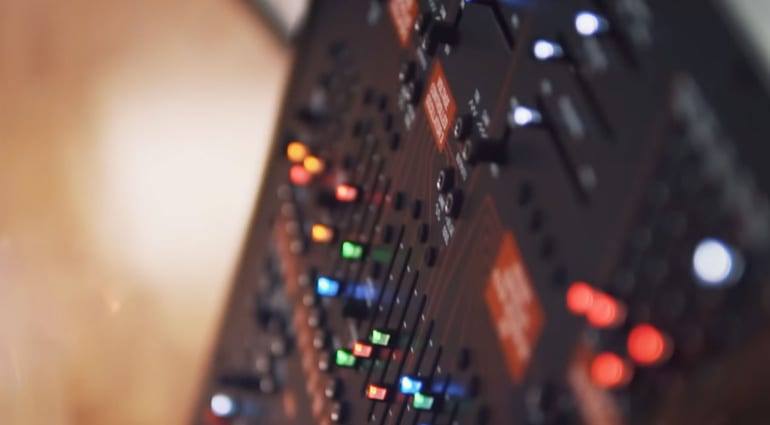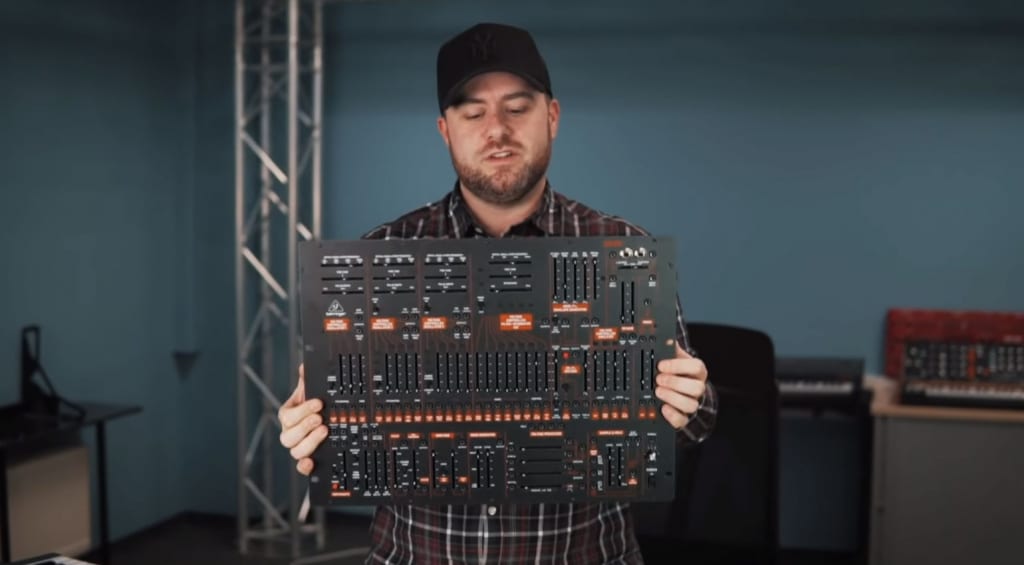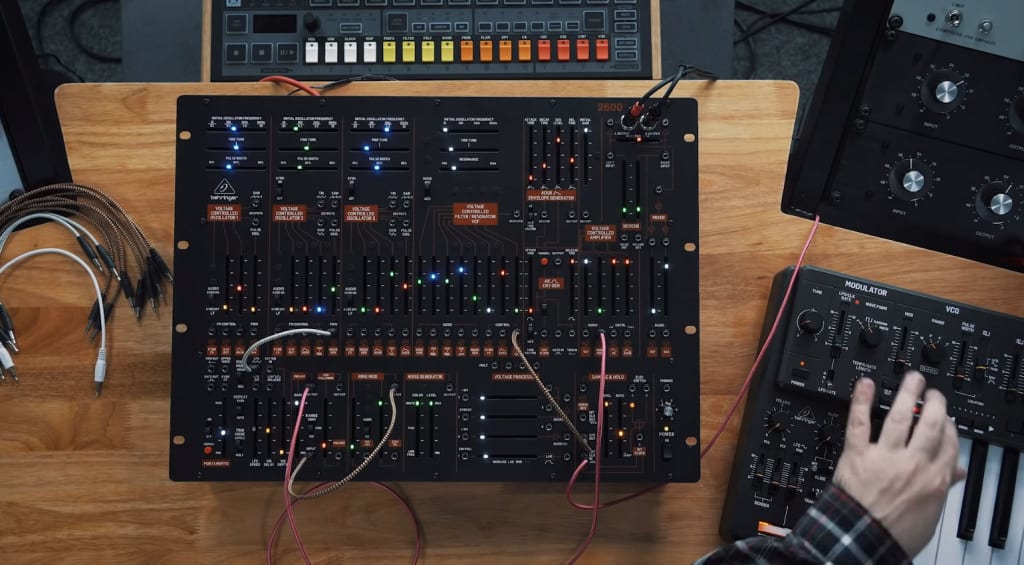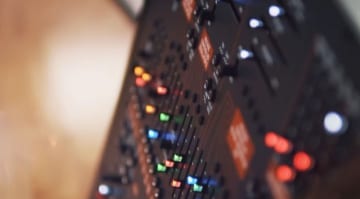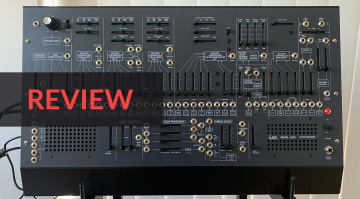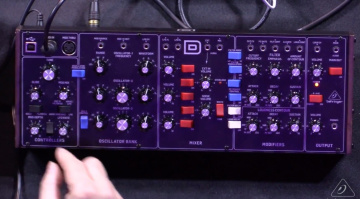Behringer gives us a walk-through of the forthcoming 2600
In episode 3 of its introductory videos on the 2600 synthesizer Behringer takes us through the machine and gives us a demo of the synth’s sound.
Behringer 2600
In the video, Patrick unboxes the latest revision of the 2600 which, we believe, should be ready by Superbooth in April. My first impression is: isn’t it compared to the original ARP 2600? Realistically for most users this is probably a good thing and perhaps more in keeping with a collection of modern synths, clones and Eurorack. The size in the video seems slightly narrower than the MS-101 and as deep as a desktop mixer.
I think the look is pretty awesome, especially the (non-authentically) multi-coloured LEDs.
So what do we learn? First of all, it sounds pretty fat and gooey to me, particularly when all three oscillators are detuning. The VCOs can also double as LFOs with the flick of a switch. The developers also added another LFO down the bottom left. There’s a vibrato control, with delay, that is normalised to the pitch of the VCOs. They’ve included both filters, the 4012 and the 4072, switchable on the front panel. On the effects side we’ll find a digital reverb with a “spring emulation” that can be blended into the outputs.
On the envelopes, they’ve added a “Time Factor” switch to halve or double the length of the AR or ADSR. The Sample & Hold can use an external clock and is normalised to the noise output for sampling although you can patch in another noise source.
It’s interesting that Behringer hasn’t added a sequencer section like it has on nearly everything else. But then the ARP 2600 was always reliant on a keyboard or other gear for input. And that gives it a very musical vibe in a way that’s not always present with modular-style synthesizers. It sounds great to me and I wonder what it’s going to be like playing with this as an instrument.
More information
Video
You are currently viewing a placeholder content from YouTube. To access the actual content, click the button below. Please note that doing so will share data with third-party providers.
